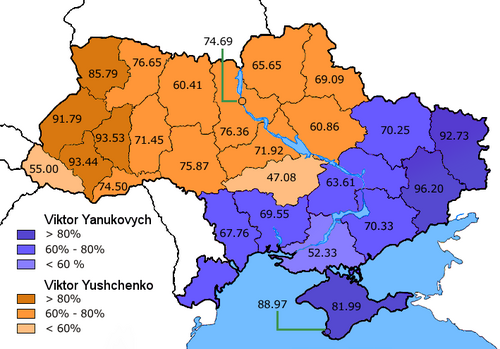My impression is that North Korea as the ultimate Stalinist freakshow really only entered western consciousness in the last few years as the Kim Jong-Il regime acquired nuclear weapons and long range missiles. Well known emblems of the freakish regime range from mass tragedy (famine), brutality (escapees strung together with a wire through their noses), to monumental failures and the amazing (a human video billboard). My personal favorite is a full page color ad placed in the New York Review of Books a few years ago for a book exalting Kim Jong-Il as the greatest human to walk the earth and then some (perhaps the book was Kim Jong-Il, A Brief History, brief indeed compared to the 2,161 page Complete biography of the Great Leader Kim Il Sung). The layout of the ad was sub-amateur and the hyperbolic language clearly written for a captive audience. I don’t believe I’ve ever seen a more hopeless advertisement in my life.
However, if two recent columns by Andrei Lankov are accurate, western perception may be trailing reality. December 7th’s Cracks in North Korean ‘Stalinism’ and December 14th’s Welcome to capitalism, North Korean comrades paint a picture of a regime that has lost control of the people’s minds and no longer runs the economy. Cheap used VCRs and transistor radios smuggled from China and soap operas broadcast from South Korea have helped, but the largest factor seems to be a total collapse of the state run economy over the last decade, leaving even the ultimate Stalinists bereft of carrots for party members and sticks for everyone else.
Total control of the economy is a rather impossible goal, though mere dictatorial political control should be no problem. However, Lankov argues that the regime’s myths are dissolving …
Perhaps few North Koreans believe that every South Korean family has its own car (even if it really is the case). But there is no doubt that it is dawning on them that the South is not exactly a land of hunger and desperation. This is certain to have political consequences in the not too distant future, since the myth of South Korean poverty has been fundamental to the survival of the North Korean state. Pyongyang has always based its claims for legitimacy on being a better type of Korean government, supposedly delivering the quality of life that would be unavailable in the “exploited” and “impoverished” South. If the North Korean populace learn about South Korean prosperity, then the Pyongyang government is in deep trouble – as the fate of the much more successful East German government demonstrated: the economic gap between North and South Korea is much greater than was once the case in Germany. According to current estimates, the per capita gross national product (GNP) in the South is 10 to 20 times higher than in the North.
… perhaps leading to a collapse not unlike that seen in Lankov’s native Soviet empire, and just as unexpected by most.
There are far more interesting observations in Lankov’s above columns and his Korea Times series on “Another Korea.”
While I have little stomach or interest in the most brutal atrocities of oppressive regimes, I find attempted total economic control perversely interesting. Here’s one illustrative quote from Lankov:
Unlike governments of other communist countries, until the late 1980s the North Korean government did not even allow its farmers to cultivate kitchen gardens – the individual plot was limited to merely 20-30 square meters, hardly enough to grow enough chili pepper. This was done on purpose. In many other communist countries, farmers had bigger plots and made their living from them, ignoring their work obligations to the state-run cooperative farms. Without their own plots, farmers would work more for the state – or so believed the North Korean government. In the utopia constructed by Kim Il-sung, every single man or woman was supposed to work for the state, and was rewarded for his and her efforts with officially approved rations and salaries.
This reminds me of a claim I once heard that tiny personal gardens made a substantial contribution, far out of proportion to space used, to the Soviet table, as gardeners had de facto property interest in production from such gardens, and no other production. If I ever recall and confirm details I may post them here.
[Welcome to capitalism, North Korean comrades link via the Mises Economics Blog.]

